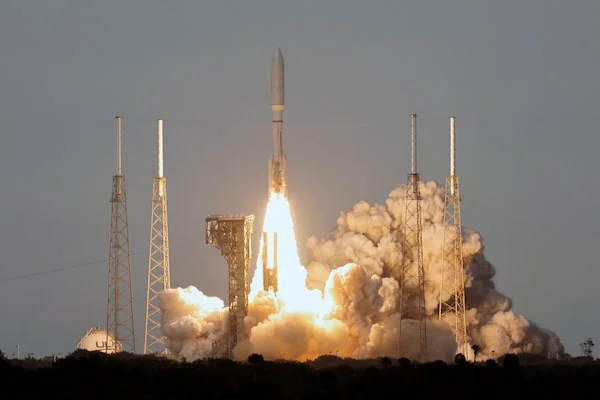
Amazon’s Project Kuiper Takes on Starlink: Is It Too Late to Catch Up in the Satellite Internet Race?
The space race is heating up, but this time it's not about reaching the moon. It's about dominating the skies with satellite internet. Amazon's ambitious Project Kuiper recently launched its first 27 operational satellites aboard a United Launch Alliance Atlas V rocket, marking a significant step in its quest to rival SpaceX's Starlink. But is Amazon playing catch-up, and can it truly challenge Starlink's dominance?
The launch, designated KA-01, represents years of development and testing, including prototype satellites launched a year and a half ago. Amazon highlighted improvements in every system, from antennas to processors and even a special coating to minimize visibility to ground-based astronomers. 
According to ULA, the KA-01 mission carried a payload of 34,000 pounds, suggesting each Kuiper satellite weighs around 570 kilograms. The satellites will initially be placed in orbits at 450 kilometers before using electric propulsion to reach their final orbits at 630 kilometers.
While Amazon celebrates this milestone, it faces several challenges. Starlink already boasts over 7,000 operational satellites and serves more than five million customers worldwide. Amazon needs to deploy half of its planned 3,232-satellite constellation by July 2026 to meet FCC licensing requirements – a deadline analysts believe is unlikely to be met without an extension.
Moreover, Amazon relies on new launch vehicles like Ariane 6, New Glenn, and Vulcan, which are only now ramping up launch schedules. Production bottlenecks have also been reported, with Amazon aiming to produce five satellites a day.
Despite these hurdles, Amazon has significant financial resources and expertise in consumer products and cloud computing to leverage. Jeff Bezos remains confident in Kuiper's potential, emphasizing the "insatiable demand" for internet and predicting success for both Starlink and Kuiper. He also noted the potential for defense applications of LEO constellations.
United Launch Alliance (ULA) is also heavily invested in Project Kuiper, relying on Amazon as a key customer for its Vulcan rocket. While ULA faces its own challenges, including an anomaly on Vulcan's second flight, it has secured certification from the Space Force and is gearing up for national security missions and further Kuiper launches. Each Vulcan launch is expected to carry 45 Kuiper satellites, a significant increase from the 27 carried by the Atlas V.

Gus Carlson, a columnist for The Globe and Mail, points out that Amazon, as a publicly traded company, faces greater accountability than SpaceX, which is privately held and under the control of Elon Musk. However, Carlson also acknowledges Bezos's track record of proving doubters wrong, suggesting that Amazon's determination and resources could make it a contender in the long run.
In conclusion: While Starlink enjoys a substantial lead, Amazon's Project Kuiper is a force to be reckoned with. The satellite internet race is just beginning, and the competition promises to drive innovation and expand internet access globally.
What are your thoughts on the satellite internet race? Will Amazon catch up to Starlink? Share your opinions in the comments below!